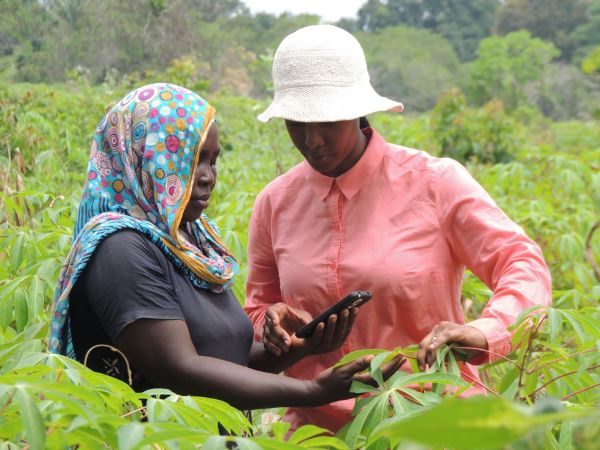‘Social Agriculture’ Is Gaining Ground As Kenyan Farmers Embrace Facebook

Kenya is proving a fertile ground for a growing trend researchers are calling “social agriculture” – a term which describes how farmers use social media as a source of revenue by selling information and produce on various platforms – as new findings reveal the significant role of social media, particularly Facebook, in transforming the country’s agricultural landscape.
According to a new publication by research and advisory firm Caribou Digital, a substantial 62% of Kenyan farmers are utilizing Facebook as a pivotal tool for selling produce, marking a notable departure from traditional agricultural marketplaces.
Notably, more Kenyans use Facebook for agriculture than all dedicated agricultural platforms combined. Social media platforms are hubs for marketing, information exchange, and social support.
In the survey, 52% of participants bought information, while 27% sold produce, advice, or services on social media. The top platforms for agricultural activities are Facebook (62%), YouTube (16.15%), and WhatsApp (13.35%), with only ~3% using the dedicated agriculture platform WeFarm.
The study, titled “The Platform Livelihoods Project,” conducted in collaboration with the Mastercard Foundation and with support from the Bill & Melinda Gates Foundation, also noted the use of social media platforms not only for marketing but also for exchanging vital agricultural information and providing mutual support.
Jonathan Donner, Senior Director for Research at Caribou Digital, highlights the significance of this shift, stating, “Our research unveils the transformative potential of social media in reshaping how farmers engage in agricultural trade. The prevalence of Facebook as a primary platform for selling produce underscores the evolving nature of digital marketplaces in Kenya.”
The study delves into the experiences of over 700 individuals across Ghana, Kenya, Uganda, Nigeria, and Indonesia, shedding light on the multifaceted nature of digital livelihoods. Beyond conventional notions of gig work, the research introduces the concept of “platform livelihoods,” emphasising how individuals derive their income through various activities on digital platforms.
Tade Aina, Chief Impact and Research Officer at Mastercard Foundation, emphasises the importance of leveraging these insights to foster inclusive economic growth, particularly for marginalised groups. “Understanding the digital experiences of young people is crucial for creating programs that align with their aspirations,” Aina states.
Furthermore, the study elucidates the challenges faced by marginalised groups, including women and people with disabilities, in harnessing digital platforms for livelihood opportunities. These challenges range from harassment and pay disparities to limited access to essential resources such as devices and bank accounts.
The Platform Livelihoods Project represents a collaborative effort involving 40 researchers and practitioners from esteemed institutions worldwide. Through its comprehensive insights, the project aims to shape discourse on digital transformation, spotlighting the collective action required to foster inclusive and empowering platform livelihoods.
Featured Image Credits: Farmers Review Africa